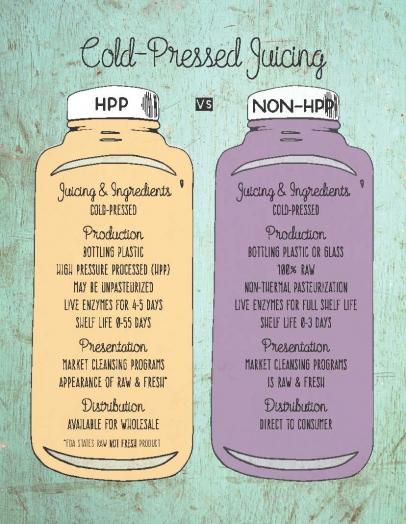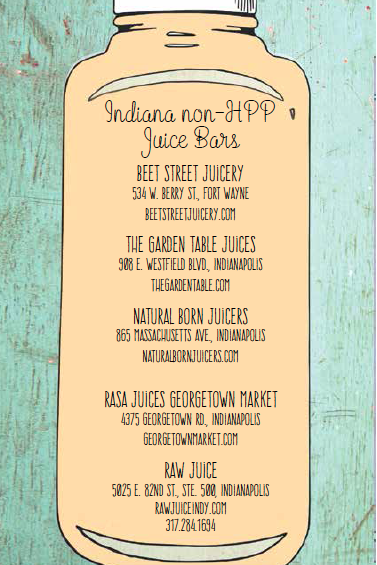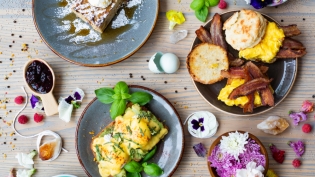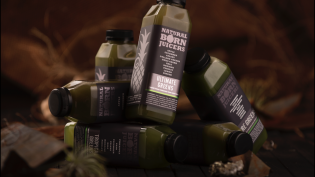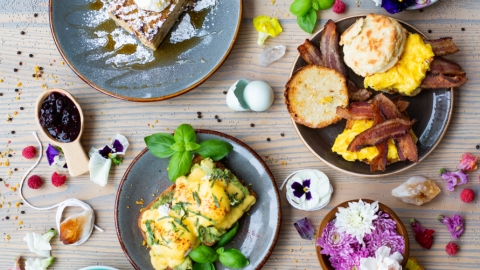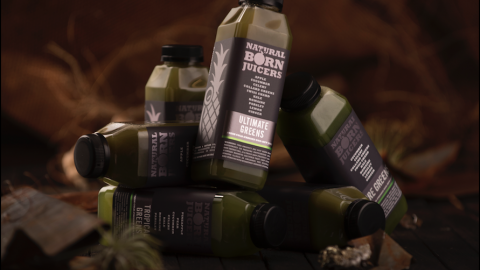A Conversation with Brandon Waloff of the Raw Juice Alliance
Maybe you’ve seen them—signs popping up at your favorite raw juicers touting they sell only “non-HPP” juices. But what is this and why does it matter? After all, don’t words like “raw,” “cold-pressed” and “fresh” mean all juices are created equal? The answer: No.
What is HPP in juicing?
As defined by the juice company Juice Press on its website JuicePress.com, high-pressure processing (HPP) is “a non-thermal pasteurization process. It preserves and sterilizes food by applying very high pressure through a water bath that surrounds the product. Exposure times range from a millisecond pulse to a treatment time of over 20 minutes. The high pressure inactivates certain microorganisms and enzymes in the food, which slows the deterioration of foods by stopping the chemical activity caused by microorganisms.”
Because raw juices contain microorganisms that can cause the product to go bad after about three days, most non-HPP juice is sold very close to where it is made—another great reason to eat and drink local.
According to Laura Beatus of Natural Born Juicers of Indianapolis, “Current labeling laws make it difficult for the new juice consumer to understand what they are really drinking.”
Laura’s life is dedicated to creating non-HPP, cold-pressed juices at her Mass Ave storefront and juice truck. She is not only passionate about her health, but she is also an advocate for Brandon Waloff, founder of the Raw Juice Alliance and a member of his The 3 and Under campaign (more to follow).
Before health coach Brandon Waloff became the face of the Raw Juice Alliance, he was the health coach and community outreach manager of an HPP juice company he felt wasn’t being transparent with consumers about the juice they were purchasing. He decided to leave the company and he founded the Raw Juice Alliance where he educates people about his beliefs on cold-pressed juices.
Edible Indy: What is the Raw Juice Alliance?
Brandon Waloff: The Raw Juice Alliance is a grass roots campaign designed to educate consumers on the differences between the two forms (HPP and non-HPP) of cold-pressed juice in the marketplace.
EI: What would you say is the biggest nutritional difference from HPP to non-HPP?
BW: The major difference is freshness and the nutrients that come with a juice being fresh. You cannot purchase an HPP juice that’s been made within 24 to 48 hours—the time needed to drink the juice to retain the valuable enzymes and life force that you’ll want. This simply isn’t possible with HPP juices due to the pressurization and processing.
EI: Why is truly raw juice important and what is the difference between pressurized and raw?
BW: Raw juice carries an abundance of vitamins, minerals, enzymes, antioxidants, cellular metabolizing and fat-busting properties. When you juice raw vegetables and fruits, you literally get pounds of nutrients uploading into your system in real time. This is beneficial for people looking to become healthier and who are suffering from chronic illnesses. Pressurized juice, albeit still considered raw, is a manipulation of the food industry, it goes against the spirit of raw foods and is why the movement of producing non-HPP juices started. Technically pressurized juice is raw because it hasn’t been heated over 118° Fahrenheit, although the reality of the juice is that it’s missing valuable enzymes and is a lifeless shell of what it could if it were fresh.
EI: What should the consumer be concerned about when purchasing cold-pressed juices?
BW: No matter what the type of juice, fresh and organic should always be the most important of all concerns. Other concerns may be price due to the cost of organic cold-pressed juice. Glass versus plastic bottles is also important. Most non-HPP cold-pressed is in glass, however, HPP juices are always bottled in plastic.
EI: For the person who is new to juicing—why do grocery stores and markets carry HPP and why are they not allowed to carry non-HPP?
BW: For some grocery stores it’s not a matter of allowance. Some simply cannot carry fresh, cold-pressed juice because retail markets such as Whole Foods, Safeway, Kroger, Wegman’s, etc., have supply and distribution chains where only HPP juices can survive the time it takes to go from point A to point C. (HPP juices can survive up to 55 days where non-HPP juices are expired after three days).
EI: Why would one chose HPP over non-HPP? Convenience? Price?
BW: In my opinion it is lack of knowledge. A customer doesn’t want a juice that’s not fresh, however HPP companies tend not to educate their customer about the shelf life of their product. Next I would say price. You can go into most Starbucks and buy a non-organic HPP juice for about $5. Most HPP juices are priced less than fresh non-HPP, which tend to cost between $6 and $10. Lastly, brand. Many HPP companies have built strong followings and have earned customers’ trust.
EI: What is the most important thing you feel that should be known about this issue?
BW: That HPP juice companies are not being up-front with their customer about the process. I also would like people to understand HPP juices are not fresh and barely raw. Most people have no idea the juice they’re purchasing is weeks old.
EI: How many HPP and non-HPP companies exist in the United States?
BW: More open every day. I only know of a handful of HPP off the top of my head ... Suja, Blueprint, Forager Project, Evolution Fresh, Project Juice, Pressed Juicery, Love and Grace. The national brands are the first three or four mentioned above. At the moment, there are over 150 non-HPP juice companies and they all are geocentric to the cities in which they reside. And it’s not just the United States. I’m working with a blogger and neighboring juice company in Toronto at the moment and have talked to companies in New Zealand, England and France.
EI: You have created a new campaign you are marketing called The 3 and Under campaign—can you tell us more about it?
BW: I send fresh, cold-pressed juice companies my in-store marketing material to educate their consumers that the best and freshest juices they will find are made within three days. The marketing also touches on HPP as a way to start dialogues in the juice shops I work with. #3andUnder is the hashtag to spread social awareness.
To find out more about the Raw Juice Alliance, The 3 and Under campaign and Brandon Waloff, visit TheRawJuiceAlliance.com or visit the project on Instagram @therawjuicealliance.
Want to try local, non-HPP juice? You’re in luck. These local companies offer juices made daily right here in Indiana.


